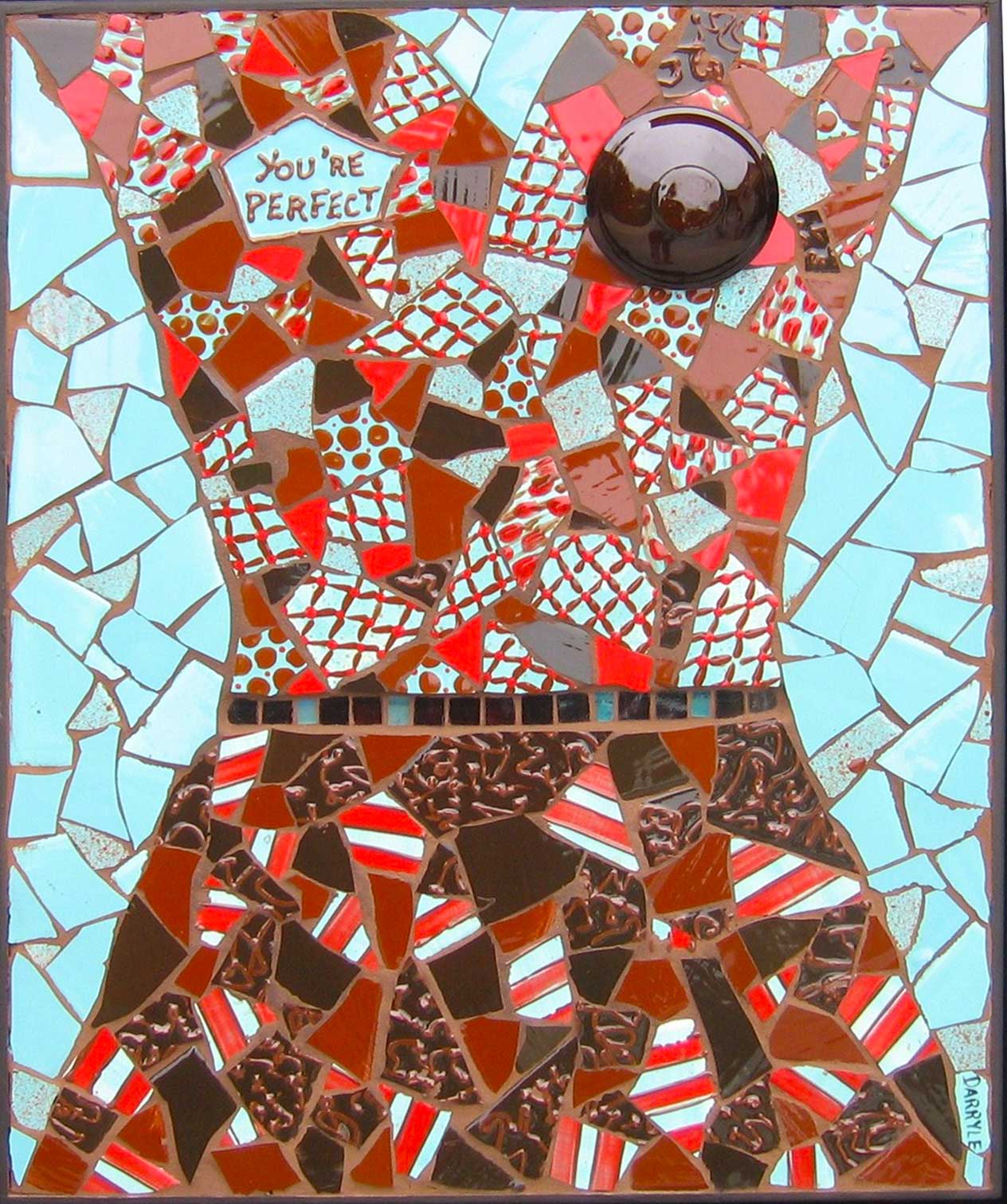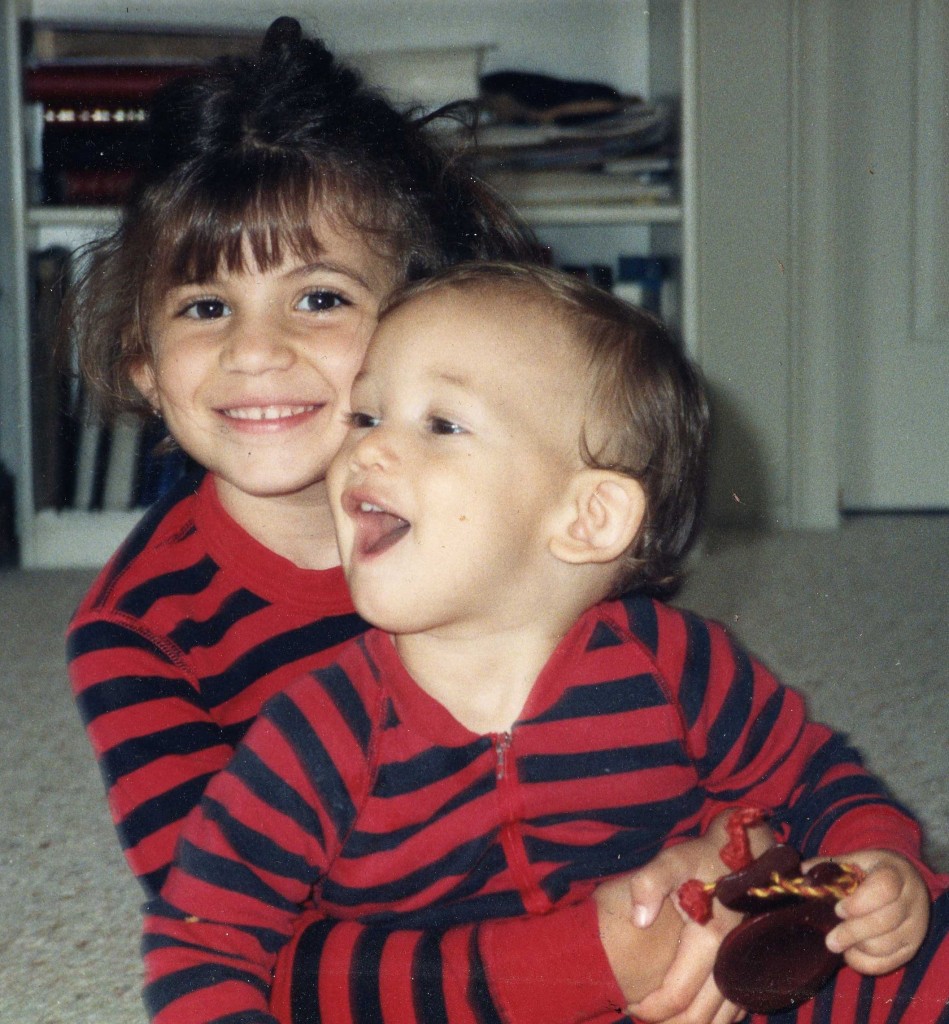Although I’m Jewish, I don’t know much Yiddish. But I love the words I know, which perfectly capture things that the King’s English cannot begin to describe. Schlep. Schlemiel. Chutzpah. Chatchkes.
Perfect words and impossible to imagine living without them. If Yiddish was still in use, maybe we would have words for other things equally hard to articulate—like some of today’s complicated relationships. For instance, what is the word for the relationship between my husbands—present (V) and past (H)? They have a relationship, but how to label it? Things are getting way more confusing all around, and someone needs to invent terms for this stuff. In English.
There is a Yiddish word to describe what my daughter’s in-laws are to me. But unfortunately that word—machatonim— doesn’t do me much good with my machatonim, who are Scottish.
The question of what to call each other was not on the radar when we first learned we were about to have a relationship. We knew absolutely nothing about each other, had never met, and the religious issue loomed. What would Jesus do?
I knew what I would do, since I am a veteran of a mixed marriage (that’s to V.) At our wedding, I was nearly beyond child-bearing age, and already had produced two purebred Jewish children. Still, my father had been intensely opposed, refused to attend the wedding and refused to speak to me for months afterwards.
My dad is no longer here to witness history repeating itself. And based on my own experience, I knew that if one of my children chose to marry a non-Jew, my reaction would be to swallow hard, and smile. Which I did.
My daughter’s future in-laws had it worse. As Christians, their faith is far more central to their lives than Judaism is to me. Their family had not expanded into unfamiliar religious territory as ours had. Plus they weren’t given much time to work through these issues, since the happy couple gave their families exactly 5 days notice of their upcoming wedding.
Yes, you read that right. 5 days. Alli was not pregnant. And they weren’t planning to elope to Vegas or anything like that. People actually were expected to show up.
That kind of schedule didn’t allow for the traditional rehearsal dinner—there was no rehearsal and barely time for dinner. I didn’t want to meet the in-laws for the first time at the wedding itself. So we arranged to meet a few hours before the wedding, at a local coffee shop.
This was several years ago, and I had just seen “Meet the Fockers”. I remember thinking about that as I walked toward the coffee place, with V on one side and H on the other. Two husbands. Devout Christians. Oy vey.
The first thing they said was that our situation was just like ….”Meet the Fockers”. The ice was broken on the spot.
Four years later; and I’m still not sure which of us was supposed to be the Fockers.



Kudos to Alli and Shane for not letting religion and nationality to come between their marriage! Love has no boundaries and things like religion and nationality should be overlooked..all that matters is if they marry someone who loves them and treats them right!
I am writing the rehearsal dinner speech for my son’s upcoming wedding and looking for words to describe what has up to now been but a very fleeting relationship with her parents. Except for a onetime meeting with my daughter-in-law’s mother a few months ago, I have yet to meet either her father nor her brother. My son and I are firmly identified as Jewish. I attend an Orthodox congregation, keep kosher, but am not Shomer Shabbat. From what I understand, the father-in-law is a devout Baptist, who met his wife after he was “born again.” He is also Japanese, which creates a bit of a cultural barrier in addition to the religious difference. Although it won’t be at the wedding proper, I will literally meet my machudin for the first time at the rehearsal dinner in just three days. I am a widower, who has not remarried in the intervening 15 years since I lost my wife of 10 years. I chose to raise my son with the help of my mother after my dad died just a few weeks before my wife. Culturally, my son is Jewish, but he is not particularly observant. His fiancée (whose name is eerily similar to your son-in-law’s) revolted against her parents’ chosen faith and is now fairly secular in her outlook. They met at university and have been living together for over a year and a half. Both of them have determined to have a non-religious home in deference to their parents and the service will have virtually no religious traits: to wit, the bridal party will enter to a famous Bach cantata (piano instrumental); the officiant, who is a licensed minister, will not invoke any religious reference when they exchange their vows; and my son plans on smashing a glass at the end of the ceremony. They had planned on being married under a chuppah, but when I pointed out it meant they would be establishing a Jewish home, they changed their collective minds. I am endeavoring to learn the part about swallowing hard and smiling. So, I guess, I’m curious to find out how things have fared between in-laws in the past year? Have things improved or is it still a bit tenuous?
We have very little contact; So far, so good. From my observations of other couples with religious differences, if there are going to be real problems, generally the problems start when they have children. I think you’re wise to put your relationship with your child before anything else—wishing you luck and congratulations.